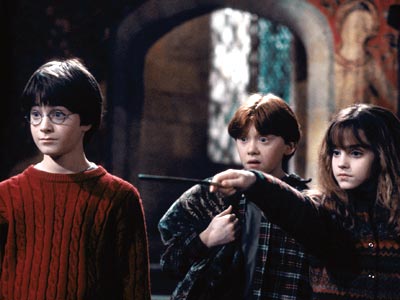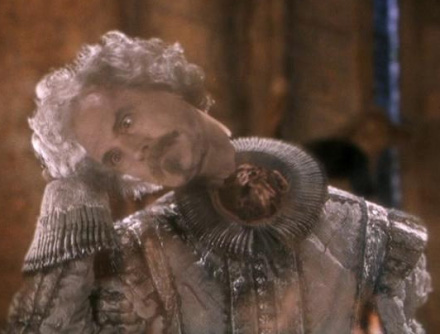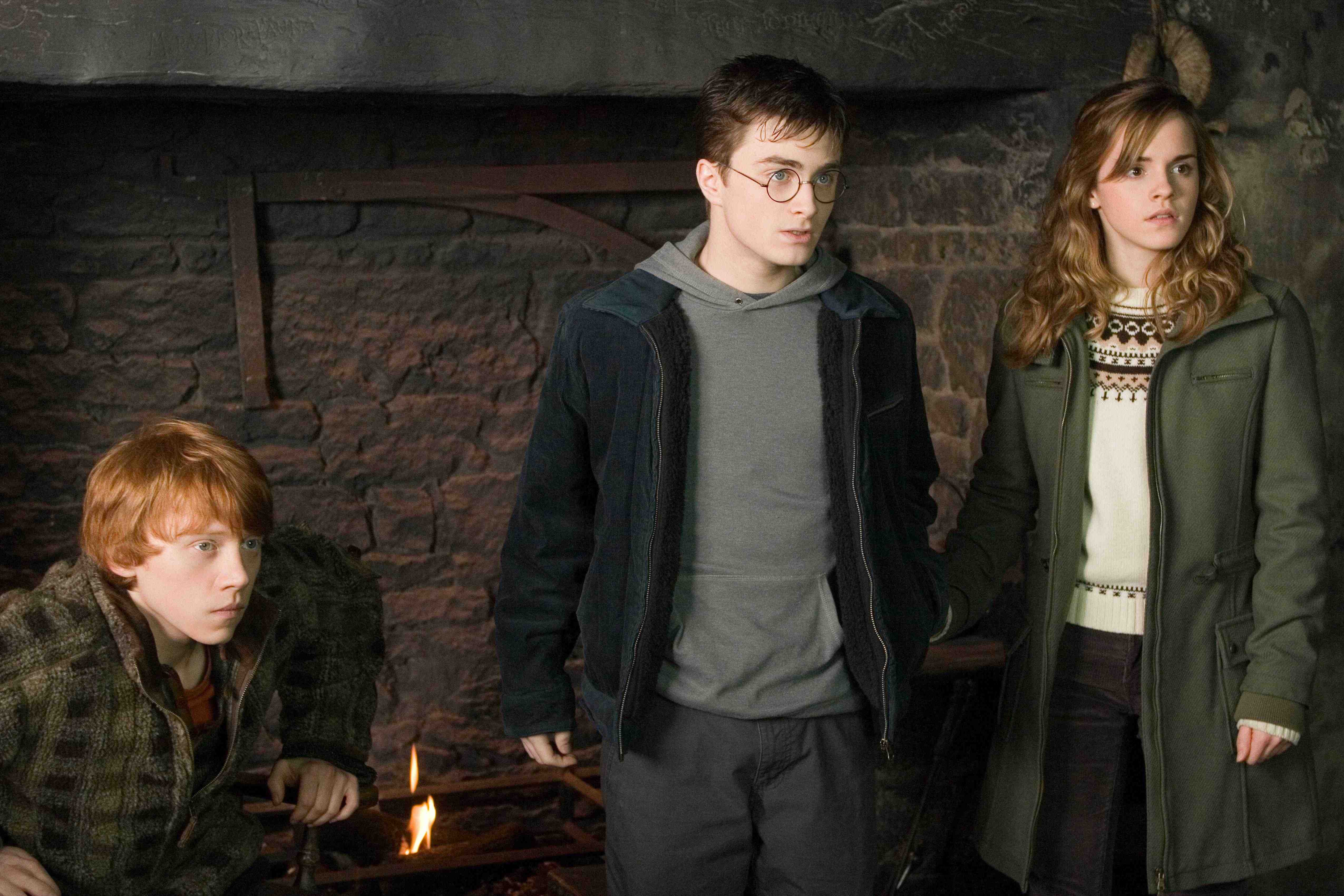When Warner Bros. started making movies out of the Harry Potter books, we all knew we’d have to accept that some our favorite parts may not make the final cut. It’s completely understandable that when movie-makers cut the books down into films that the extremely complex world loses some of the details, but that doesn’t mean we all don’t have a laundry list of things we wish didn’t hit the cutting room floor.
Before I dive into this list, I want to preface it with the fact that these are just my top 10 and that J.K. Rowling herself has been involved with the film-making process. I’d wager to say that no one can claim the ultimate list of Potter things skipped, because there are just far too many remarkable moments in the books. That said, these are my top 10 missing things, but I’m sure there are hundreds of other amazing bits from the 4,175 page saga that didn’t make it either.
 Harry Potter and The Sorcerer’s Stone: Hermione’s potions challenge before Harry confronts Professor Quirrell
Harry Potter and The Sorcerer’s Stone: Hermione’s potions challenge before Harry confronts Professor Quirrell
In the movie, Hermione stays behind with Ron after he’s knocked out playing wizard chess and tells Harry to go ahead, pausing to tell him what a great wizard he is. Luckily, her speech about Harry is taken right from the book. The part that is missing is the potions challenge that follows Wizard’s Chess. In the book, Hermione continues on with Harry and solves a logic puzzle that helps her choose the right potion to get through a wall of black fire from a slew of bottles that include poison and wine; she does this all using logic, not magic. It’s that distinction that makes the scene important. Hermione comes from Muggle parents and developed some very practical skills that the wizard-born kids haven’t yet honed. Plus, it promotes the idea that magic can’t solve every problem and grounds Potter’s Wizarding World in a bit of reality. It’s also a short piece and it really wouldn’t have added much length to the film’s runtime. In other words, there’s no excuse.
Harry Potter and The Sorcerer’s Stone: Dumbledore’s Insight on Death
When Dumbledore explains to Harry that the destruction of the Sorcerer’s Stone means ultimate death for the previously immortal Nicholas Flemel, he also explains that, “To the well-organized mind, death is but the next great adventure.” In the film, this single line and sentiment is completely and unnecessarily eradicated. While I’m sure they took it out because it’s a rather mature concept, I don’t agree with its removal. If kids are mature enough to read lines like that in J.K. Rowling’s books, then they can hear lines like that in the film. Plus, it truly sets the tone for the entire series. Harry has to cope with the death of his parents every day and very heavily throughout the first book. As he grows and the war with Voldemort approaches, he has to come to terms with the death of friends and fellow wizards again and again and again. It’s just a single line, but it’s actually integral to the entire series. (Plus, Rowling has Harry repeat it to Ron and Hermione after he talks to Dumbledore, which only increases the case for its effect on Harry’s development.)
 Harry Potter and The Chamber of Secrets: Nearly Headless Nick’s Death Day
Harry Potter and The Chamber of Secrets: Nearly Headless Nick’s Death Day
This little vignette is completely missing in the film adaptation. In the book, Harry, Hermione and Ron are invited to Nearly Headless Nick’s Death Day celebration and Harry attends in lieu of going to the school feast. The scene gives us a glimpse into the surprisingly human interactions between the Hogwarts ghosts. Nearly Headless Nick is ridiculed and left out of the headless hunt because he’s only nearly headless, and it weighs on him. While it’s a great deal of silly fun, the scene is also important because it’s one of the points when Harry really gets it. In the first book he forms great friendships with Ron and Hermione and he learns a lot about magic, but he’s still pretty much a deer in headlights. When he reaches this point, he finally sees that these strange people whose world he’s still very new to are actually human despite their supernatural eccentricities. And just as Harry has this realization, it’s solidified for the reader as well.
Harry Potter and the Goblet of Fire: Winky the House Elf
Winky was the house elf for the Crouch family and is magically tied to Barty Crouch Jr. (a convicted Death Eater). At the Quidditch World Cup, she is with him when he escapes to the woods to send the Dark Mark into the sky. He stuns her and leaves her alone as he flees and Winky is blamed for the Dark Mark. Barty Crouch Sr. eventually frees her in order to clear his family of blame for the Dark Mark, but it’s his rash mistreatment of the house elf that drives her to become a drunk and eventually inspires Hermione to create S.P.E.W. which was also left out of the films. (I’ll get to that.) Winky definitely complicates the plot, but once again her presence brings a measure of humanity to the creatures of the magical world and elevates their status from little more than cartoon characters. Characters like Winky lend depth to the books and the concept as a whole and by leaving them out, the films really lack that element.
Harry Potter and The Goblet of Fire: The Sphinx Challenge in the Maze
Missing from the film version of the maze in the Triwizard Tournament is Harry’s encounter with the sphinx. Harry solves the sphinx’s complex riddle which allows him to get closer to the Goblet faster than everyone else without using any spells. The scene is another short one that could easily have been included. It’s an introspective moment and it works to deepen Harry’s character. Something the films do far too often is dump Harry, Hermione, and Ron into categories: The hero, the brain, and the lovable screw-up, respectively. This scene is one that really brings out Harry’s intelligence and ability to think on his feet and it would have served to create a richer depiction of Harry instead of leaving us with the “broad strokes” style hero the films seem to promote.
 Harry Potter and the Goblet of Fire and Harry Potter and The Order of the Phoenix: Hermione creates SPEW
Harry Potter and the Goblet of Fire and Harry Potter and The Order of the Phoenix: Hermione creates SPEW
As I mentioned, this is tied to Winky’s absent storyline and is absolutely nowhere in the films. I can resign to the fact that they probably didn’t have time to really delve into the creation and promotion of SPEW (The Society for the Promotion of Elfish Welfare), but they could have at least weaved in a few references – like perhaps a badge on her robe and a few lines mentioning her role as founder? In the books, the concept does get fairly complex but it wouldn’t have been too difficult to include a simplified reference. Once again, it’s integral to the way Rowling builds Hermione’s character and its absence takes away a piece of her personality.
Harry Potter and The Order of The Phoenix: Nearly Headless Nick’s Talk with Harry After Sirius’ Death
After the battle at the Ministry of Magic, Harry finds Nick hoping to learn that he won’t have to live without his Godfather after all. Thinking that since Nick came back as a ghost that Sirius will too, he asks Nick about how wizards can become ghosts. Nick replies simply, saying that Sirius won’t return as a ghost. He then explains the idea of choosing “a feeble imitation of life” like Nick did instead of accepting death. This, like Dumbledore’s quote from book one furthers the idea of accepting death, something the Harry has to come to terms with again and again throughout the series. (This second lack of Nearly Headless Nick also underlines the fact that he seems to be missing from the movies, post-Prisoner of Azkaban. Not only is Nearly Headless Nick a great character, but any excuse to see John Cleese in a movie is okay in my book.)
Harry Potter and The Order of The Phoenix: Neville’s Parents At St. Mungos
Harry and Ron visit Ron’s dad in St. Mungo’s and in the book they also encounter Gilderoy Lockhart (who I’m okay with filmmakers leaving out) and Neville Longbottom visiting his parents, both permanently mad from the Cruciartus Curse that Bellatrix LeStrange tortured them with. This is an extremely important moment, and I remember when I read the passage in the book that it made my stomach do somersaults. This moment not only makes Neville a three dimensional character, but it also bonds him with Harry. Harry immediately feels more connected to Neville, experiencing a “rush of understanding” and working to distract everyone to make sure no one else notices Neville. It’s also important because Neville’s parents were Auror’s and Harry is considering making that his wizardry career path. Auror’s hold one of the most well-respected wizard jobs out there, but seeing Neville’s parents this way also serves as a sort of “with great power comes great responsibility” moment.
 Harry Potter and The Half-Blood Prince: The Prime Minister Meets Cornelius Fudge
Harry Potter and The Half-Blood Prince: The Prime Minister Meets Cornelius Fudge
The sixth movie forgoes the first scene of the book, where the Minister of Magic, Cornelius Fudge, appears to the Prime Minister in his office. Eschewing this scene, filmmakers instead use a completely fabricated sequence depicting Harry flirting with a waitress in a London train station and Dumbledore subsequently swooping in and killing his game, which was just ridiculous. The opening scene of the sixth book is crucial because it answers the question that has been piqued here and there throughout the entire series: How can this world exist and be marching towards this huge war without any integration with the Muggle world? Well, this scene would have explained that and put it into perspective pretty well had it been included. I also enjoy the scene because it’s kind of a last-minute plea for the non-Potter believers. Yes, these books are about wizardry and that’s hard to get on board with because it’s not grounded in reality, but the conversation between the two leaders does a nice job of marrying the two sensibilities.
Harry Potter and The Half-Blood Prince: Bill Weasley and Fleur’s Romance
This one is just something I’d like to see, and I completely understand why it didn’t make it into the films. I just simply love the plot of Bill and Fleur. It’s sort of typical fantasy; Fleur changes her superficial ways for love. When Bill is attacked by Greyback and assumes some wolfish tendencies, Mrs. Weasley assumes Fleur will be out the door in no time, but Fleur loves Bill and says she’ll stay and marry him. Also, the seventh book starts with their wedding and that’s where Harry and friends find out that Voldemort has seized control of the Ministry of Magic and thus, the entire Wizarding World. It would simply be nice for non-readers to have had a little insight into Bill and Fleur’s romance, especially since she was a significant part of Goblet of Fire and her wedding will serve as an integral turning point in the final chapter of the series.


